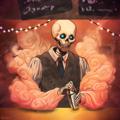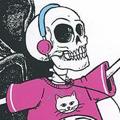I cannot fully review this without some spoilers.
First of all, I would give this book a cw for trauma/psy abuse survivors. Its not evident at first, but part way through you will realize why the cw and might want to stop reading.
This book heavily relies on two devices. One being the fact it is written in first person narrative in the form of diary entries. It's story unfolds from this perspective. The second device, is a bit trickier. I will explain past the asterix.
To me, the book was difficult and a bit boring to start. Once I figured out what was going on, the story moved along much easier. I feel like a story shouldn't rely so heavily on gimmicks. I wonder if I would even get through the book a second time as there wouldn't be a mystery to solve. I pushed through to the end just to get it over with.
The book was described as a fantasy. I would recategorize it as a psychological scifi.
Spoilers
The second device I mentioned, is gaslighting. The Other and The Prophet each gaslight Piranesi much like in a cult. This is also where the abuse and possible trauma response occurs. It is my belief that Piranesi forgets their past as a response to their trauma. He also appears to have Stockholm Syndrome. So much trauma written in such a light hearted way was creepy to me. After a while the book started to read like a true crime book. I believe this is the main reason I did not like it. Once the device, the gaslighting, was figured out I was bored not interested in seeing the mc tormented by their situation and in such an easy going way. They were in a blissful daze, only sometimes struggling to remember the past of which they denied to be a part of. It was painful to read. I felt duped into reading a psychological thriller posing as a fantasy.
The villains felt a bit homophobicaly written too, especially The Prophet.
I think if the book description were more upfront about the genre, I might not have picked it up to read. That would have be fine with me. I think there is a lot of symbolism I am leaving out. The labyrinth being a metaphor for the human mind or something. And, the prophet being a symbol for religious leaders. I think there is a darker warning for this book. I read this as being more about people who have been brainwashed by cults or conspiracy theories. It really is an odd and simplistic book about a tough subject.
--
Each of my reviews in 2023 are dedicated to my friend Jenny, aka readingenvy. She was an avid reader (with a following). But I'll always remember reading the last few books of Harry Potter with her as it came out and her warmth. I miss seeing her book reviews.














